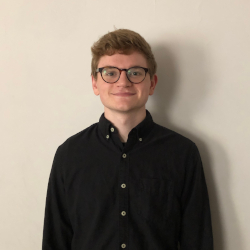
Sam Franz is a PhD Candidate at the University of Pennsylvania and a 2024-2025 Consortium Research Fellow.
How did computing technology change work? In the aftermath of the Second World War, digital computers represented the imagined future of the US economy. Computers were purported to automate not only industrial production, but also intellectual and office work, administration, and other kinds of clerical work. At the same time, universities—recipients of massive federal funding—were envisioned by administrators, officials, business leaders, and researchers as playing a new economic and social role as producers of scientific and technical knowledge. Scientific technology—especially computing technology—became the spearhead of automation. Such automation would require not only the development of new computing technologies, but also the education of technicians, managers, and scientists.
In our present moment, where the postwar scientific funding consensus has buckled, universities face an uncertain future, and AI technologies renew fears about the automation of intellectual work, my research asks how it is that computing technology became the supposed key to the future of the US economy. I tell this story by studying the institutionalization of computing infrastructure in US universities, at the same time that they were being re-imagined as mass institutions that would drive economic growth in the second half of the 20th century. How did computer scientists and computing infrastructure boosters imagine the future of the US economy? How did “knowledge work” and emphasis on “information economies” become a dominant analytic for understanding de-industrialization? How did computing technologies change the production of scientific knowledge and the imagined future of work more broadly? Computing education, more than the technical discipline of computer science, was tied to the reorganizations of work and education from the 1950s onward. Computing education infused technical and theoretical work with the dictates of managerial and administrative work, reflecting the broader goals of shaping a new class of knowledge workers.
As a Consortium fellow, I visited the American Philosophical Society, the Massachusetts Institute of Technology, the Rockefeller Archive Center, the Smithsonian Institution Archives at the National Museum of American History, and the University of Wisconsin at Madison. In approaching these collections, I attended not only to technical documentation but also to correspondence, institutional reports, and internal debates that revealed shifting understandings of computing’s economic utility and social impact.
At the Massachusetts Institute of Technology and the University of Wisconsin at Madison, I conducted research with archival records related to computing infrastructure and early computer science education at these institutions. At MIT, for instance, I was able to view a report from the conference of computing center directors, held in 1960, where administrators discussed the future of computing infrastructure in universities, especially the impact of computing technology on scientific research and education. MIT’s “Communication Sciences” department—an early form of computer science—was also unique for its interdisciplinary emphasis. In my dissertation, I will contrast the character of these early computer science programs, emphasizing the different approaches to computing in US universities in the middle decades of the 20th century. The University of Wisconsin, too, had a trove of documents related to the computerization of academic science in the University system, including debates about funding and access to centralized computing centers.
At the Smithsonian archives, I viewed the papers of Paul Armer, a key figure in my dissertation research. Armer was an advocate of computing at Stanford University, where he served as a computing center administrator and lecturer. He also participated in national initiatives to promote and assess the economic impact of computing technology on the US economy. Similarly, at the American Philosophical Society, I viewed the papers of famed statistician John W. Tukey, who also participated in the development of national initiatives in computing education through the National Science Foundation, and was active in conversations around support for computing centers, especially at Princeton University, among other institutions. The APS also holds the papers of Emanuel R. Piore, a chief scientist and manager of industrial research at IBM. A key advocate for federal funding of scientific research, I reviewed his countless speeches and professional activities advocating science funding for both universities and private corporations.
The Rockefeller Archives also proved particularly useful for my research. While the majority of my research focuses on the changing role of US universities in the second half of the 20th century and the role of computing technologies in driving that change, I also explore the global role of the United States as a booster of computing. The Rockefeller Archive Center holds extensive documents related to the Ford Foundation’s role in funding the creation of computing centers at universities in India, the Philippines, Egypt, Turkey, Mexico, and Nigeria. Crucially, private foundations in the United States played a role in globalizing the computer, and in opening new markets for corporations such as IBM. Computing education became a tool of global Cold War politics; technical education became an expression of US soft power and hegemony.
These archival materials provide critical historical context for present-day discussions of AI, digital labor, and the university’s role in the economy. Computing education was not just a technical development, but a social and economic project, shaped by universities, foundations, and corporations. By tracing how computing was imagined as an economic driver in the postwar period, my research helps historicize today’s anxieties about automation and the future of knowledge work. This research demonstrates how computing became both a symbol and a tool of postwar economic transformation.
I am grateful both to the Consortium and its member institutions for supporting my research. Good scholarship requires serious breadth—I would not have been able to research as widely and deeply as I have without the support that this fellowship provided. I’m excited to continue to participate in the Consortium fellows community beyond my fellowship term and support other scholars as they work through archival material with the benefit of the Consortium network.